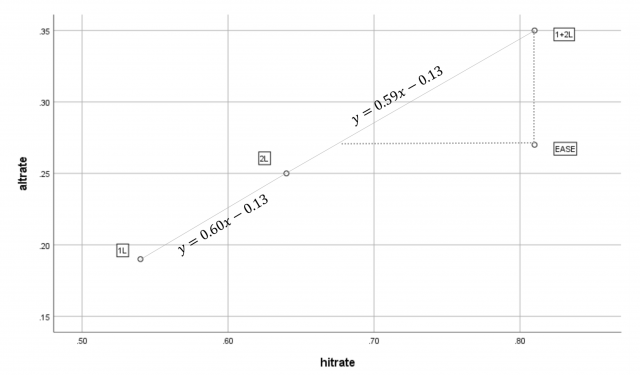Crime and Punishment: Morality judgment in a foreign language The current study examined whether use of a foreign language affects … Read More →
New Publication in Neurocase: Category specific recall in acute stroke: a case with letter speech
Category selective recall in spontaneous speech after stroke has been reported only rarely. We recently described three cases demonstrating transient … Read More →
New Publication in Neuropsychologia: The white matter architecture underlying semantic processing: a systematic review
From a holistic point of view, semantic processes are subserved by large-scale subcortico-cortical networks. The dynamic routing of information between … Read More →
New Publication in Reading Research Quarterly: Reading text when studying in a second language: An eye-tracking study
In this study, we investigated how eye movements are influenced by different text reading goals in participants’ first and second … Read More →
New Publication in Journal of Experimental Education
From Interest Assessment to Study Orientation: an Empirical Advice Set Engine Each student faces the challenge of choosing a study … Read More →
New Publication in PLoS One: the Effects of Vocational Interest on Study Results: Student Person – Environment Fit and Program Interest Diversity
The extent to which a good person-environment (PE) interest fit between student and study program leads to better study results … Read More →
New publication in Language, Cognition and Neuroscience
Prediction and integration of semantics during L2 and L1 listening Using the visual world paradigm, we tested whether Dutch-English bilinguals … Read More →
New publication in Behavior Research Methods
How well do word recognition measures correlate? Effects of language context and repeated presentations The present study assessed to what … Read More →
New Publication the Quarterly Journal of Experimental Psychology
Monitoring Speech Production and Comprehension: Where is the Second-Language Delay? Research on error monitoring suggests that bilingual Dutch-English speakers are … Read More →


